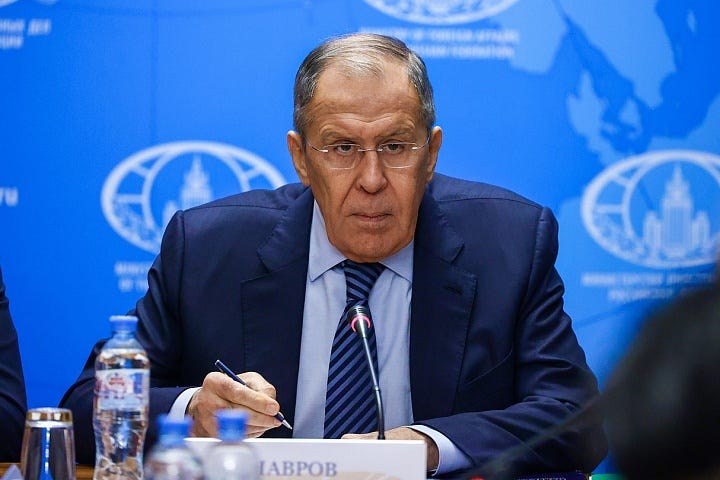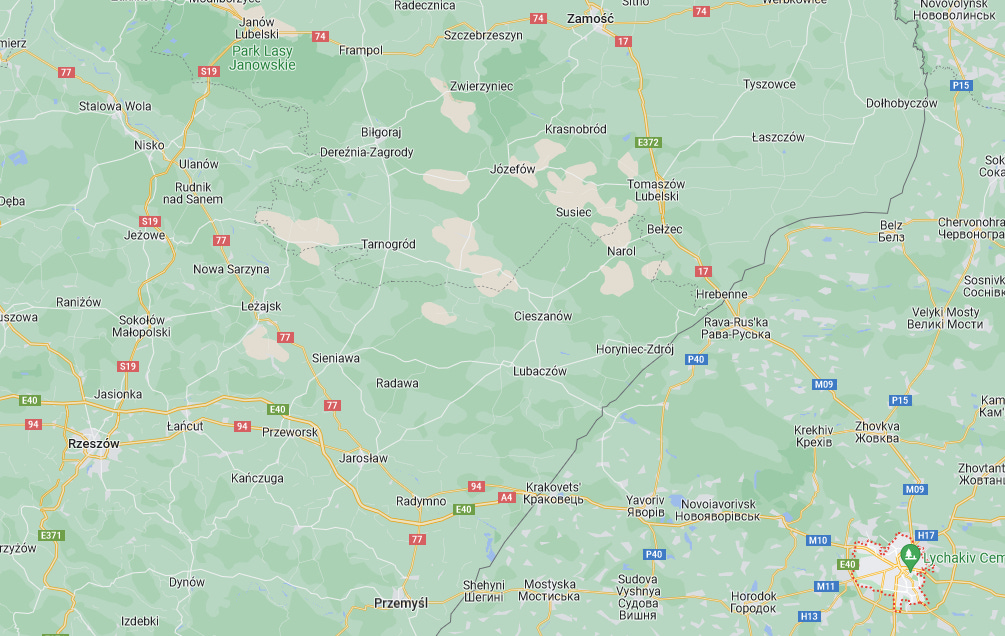The inherent problem with using threatening language and aggressive rhetoric is that there is no controlling whom might be listening, and how they might react.
Jens Stoltenberg should have weighed that risk more carefully before he shot his mouth off in Bucharest.
Having said in no uncertain terms that NATO considers Russia a mortal enemy, Russian media is running stories that build on a theme of NATO considering Russia a mortal enemy.
Yesterday, TASS highlighted a speech given by Russian Foreign Minister Sergei Lavrov at a meeting of the Dialog for the Future, in which Lavrov specifically laid the blame for the continuation of hostilities in Ukraine at NATO’s feet, and, as I predicted, used Stoltenberg’s own words as proof.
The war unleashed by the collective West against Russia has impacted strategic stability, among other things. They are not hiding this. Ukraine and its citizens are being used as expendables. They are flooding Ukraine with modern weapons and inciting them to fight Russia until victory is achieved “on the battlefield.” They are making public statements to the effect that – NATO Secretary General Jens Stoltenberg said so the other day – they are convinced that the path to peace in Ukraine lies through the further provision of modern weapons until it wins completely.
Lavrov followed up those remarks with comments at press conference covered by RIA Novosti to the effect that there would be no normalization of relations with NATO ro the EU.
"If and when, at some point in time, our Western neighbors <...> and former partners suddenly become interested in somehow restoring joint work on European security, then restoration will not work. Because restoration means what was before But there will be no business as usual."
Lavrov insisted that all attacks in Ukraine by Russia were against legitimate military targets (which is demonstrably not true, as I have already discussed), and that even the energy infrastructure attacks were to disrupt the flow of NATO weapons into Ukraine.
Asked about Russian strikes on Ukraine's infrastructure, Lavrov pointed out that the army is disabling those energy facilities that allow Western countries to "pump Ukraine with deadly weapons to kill Russians."
Of course, if interdicting weapons shipments into Ukraine were the primary purpose of those attacks, concentrating those missiles along the M10 highway to Rzeszów, Poland directly west of Lviv, and along the M9 highway which runs through Belzec, Poland, up to Zamość, to the northwest of Lviv would have been a far more effective and efficient use of Russia’s dwindling missile stocks.
Those routes are the primary arteries over which NATO supplies run from Poland—and which have been all but ignored by Putin.
The railways west and north of Lviv and Rivne would also make plausible targets—which have been all but ignored by Putin.
The missile barrages Putin has unleashed on Ukraine would be more than enough to disrupt both the roadways and railways in these areas, which would cut off the flow of NATO supplies, and which are legitimate military targets that do not disproportionately impact civilians, which is the mandate of the Geneva Conventions to which Russia is a party (at least still technically).
Yet the point of propaganda is not to inform but to arouse. As a politician, Lavrov is always going to be inherently flexible with the facts.
Thus that Lavrov is whitewashing Russia’s own conduct, which resulted in NATO giving up on Russia as a plausible Partner for Peace after 2014, effectively ending the formal agreement on mutual relations, cooperation, and security between NATO and the Russian Federation signed by both sides on 27 May 1997, is ultimately irrelevant. Lavrov is not giving a balanced presentation of Russia’s relations with the West, is not expected to give a balanced presentation, and neither TASS nor RIA Novosti are giving Lavrov’s comments balanced coverage (which would entail challenging and fact-checking his statements).
Lavrov is always going to make such statements. Vladimir Putin will always make such statements, or have his mouthpiece Dmitry Peskov make them. Russia’s Defense Minister Sergei Shoigu will always make such statements. That is the nature of politics, in peacetime and in wartime.
Yet those statements have a credibility now that they did not have before, because Lavrov, Putin, Peskov, and Shoigu can all point to Stoltenberg’s comments in Bucharest as proof of NATO’s intractable ill will towards Russia. They use—and will continue to use—Stoltenberg’s words as proof that NATO’s ill will is the cause, and Russian military actions in Ukraine are the effect, instead of the western media (and official NATO) presentation of Russian actions in Ukraine as the cause and NATO’s ill will as the effect.
While such presentations by Lavrov will not persuade anyone in the West, Lavrov is not speaking to anyone in the West. He is speaking to the Russian people, and all those favorably inclined towards Russia. Those groups are far more likely to be persuaded that NATO is the aggressor and Russia is the victim.
This stance, of course, is also untrue. While NATO is far from an innocent where Ukraine is concerned, the same can be said of Russia, and it was Russia, not NATO, that invaded Ukraine. Even for Putin, Ukraine has always been just a battlefield, never the ultimate prize.
Stoltenberg’s intemperate verbal incontinences allow Lavrov, et al, to smudge over those inconvenient realities both with the Russian people and any allies Russia might be courting.
If Stoltenberg had just kept his mouth shut, Lavrov would have a much steeper credibility hill to climb, along with the rest of his Kremlin companions.







Should we consider the idea that Stoltenberg got exactly the response he wanted?